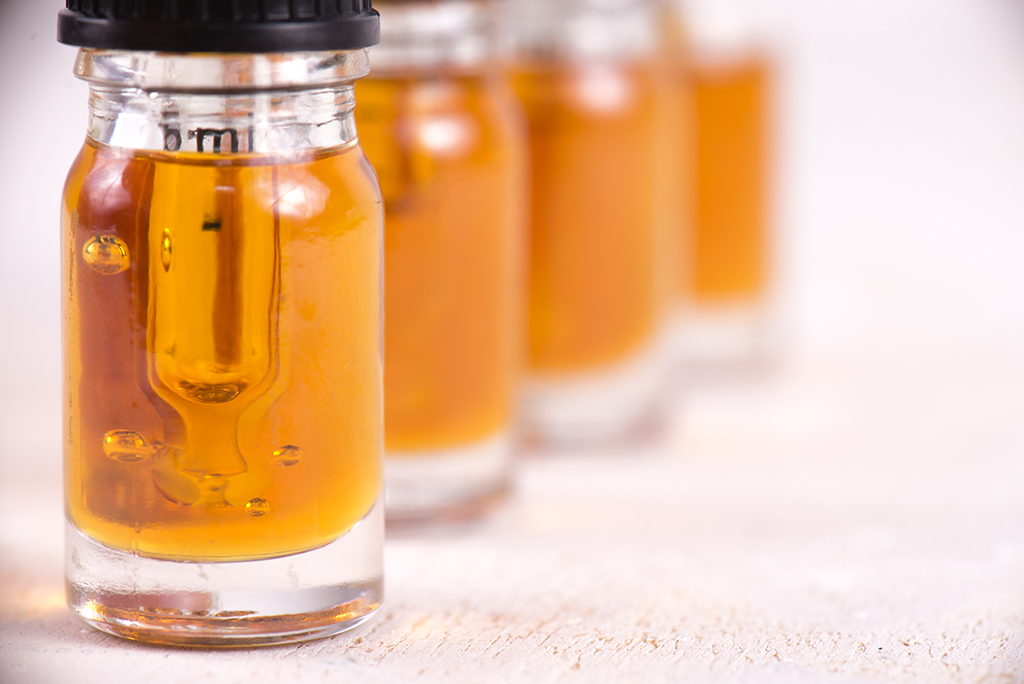
Any plant in the genus Cannabis is referred to as cannabis. This includes seeds, dried leaves and flowers, resins, and extracts. The endocannabinoid system found in the body and brain upon which cannabinoid chemicals work (via cannabinoid or CB receptors), influences various aspects such as sleep, appetite, memory and mood. Therefore, various illnesses can potentially be treated via the endocannabinoid system. About 80 to 100 cannabinoids have been found in the cannabis plant, but the two main cannabinoids displaying medicinal benefits are cannabidiol (CBD) and are delta-9-tetrahydrocannabinol (THC). CBD is considered to moderate the psychoactive effects caused by THC (otherwise known to make someone ‘high’) and has shown the possibility of treating schizophrenia and other psychoses, drug dependency, type 2 diabetes, epilepsy, inflammatory bowel disease, and some tumours. In addition to these effects, THC has shown analgesic, anti-inflammatory, anti-emetic, and antioxidant benefits. The term ‘medicinal cannabis’ includes a variety of standardised cannabis preparations for human therapeutic use, such as oils, tinctures and tablets.
Currently, there are three presentations of medicinal cannabis:
- Pharmaceutical cannabis sanctioned by governmental bodies such as the Therapeutic Goods Administration (TGA). For example, nabiximols (Sativex®), and synthetic cannabinoids such as dronabinol.
- Standardised and controlled herbal cannabis such as those plant products produced in the Netherlands.
- Unregulated herbal cannabis which is illegal, containing unknown amounts of cannabinoids and possibly toxic contaminants such as mould and bacteria.
Benefits
The benefits of medicinal cannabis are still being researched through clinical trials, and the evidence is still under scrutiny. There is some discussion in the literature of success in symptom relief for certain conditions such as for multiple sclerosis patients to treat spasticity (Sativex®), for seizures, chemotherapy-induced nausea and vomiting, and to enhance appetite in cancer or HIV patients. This will be reviewed in a future article.
Risks
Medicinal cannabis presents certain risks. It has various side effects, such as dizziness, drowsiness, fatigue, nausea, vomiting, balance problems, loss of concentration, impaired thinking and memory, diarrhoea, dry mouth, fever, and increased or decreased appetite. THC in particular can cause hallucinations, confusion, paranoia, depression, feelings of a ‘high’ or dissatisfaction, psychosis or delusions. Smoking cannabis for therapeutic reasons is not recommended as smoking is harmful by way of direct inhalation of carcinogenic substances. When using recreational cannabis, one also cannot be sure of the potency and dose in each plant. Doctors need to be assured that a substance intended for medicinal purposes has been tested and standardised for the purposes of safety, efficacy and dose adjustment.
Access
The growing of, or use of cannabis for non-medicinal reasons, the supply over the counter, and the agriculture or use aside from for controlled therapeutic indications is still illegal. The Federal Government conceded legislation permitting the farming of cannabis in Australia through a national licensing arrangement, for scientific or medicinal purposes only, via changes to the Narcotics Drugs Act 1967. The Narcotic Drug Amendment Bill 2016 offered a legislative structure allowing this and facilitated the compliance of Australia with its international requirements with respect to the farming and manufacture of cannabis. The States and Territories share this responsibility with the Commonwealth, and supply is controlled by concessions under the Therapeutic Goods Act 1989 in conjunction with State and Territory drugs and poisons legislation. From 1 November 2016, particular cannabis products were classed as Schedule 8 medicines (controlled drugs) when used for therapeutic reasons, in accordance with the Narcotics Drugs Act 1967 and the Therapeutic Goods Act 1989. Medical practitioners in South Australia can legally prescribe medicinal cannabis with Commonwealth approval and the relevant State approval in accordance with the South Australian Controlled Substances Legislation. It is indicated for use in situations where conventional treatments have been considered and have not been successful and in extraordinary cases. The TGA Special Access Scheme allows for the importation and supply of therapeutic goods that are otherwise unapproved for use in Australia, on a patient-specific basis. Several types of medicinal cannabis are therefore able to be acquired via this pathway.
Figure 1: South Australian supply pathway for medicinal cannabis
-
- Clinical decision made to prescribe a medicinal cannabis product
↓
- An appropriate dose form is selected
-
- Contemplate dose schedule, dose form, availability and cost
- Can contact the TGA for advice on 1800 220 007
↓
-
- Prescriber applies for approval or notifies the Commonwealth and SA Health
-
- Apply via the SAS or the Authorised Prescriber (AP) Scheme
-
- Decide requirements in accordance with South Australian Controlled Substances legislation
- Apply or notify under the SAS or AP
- Seek a licence and permission to import
- Conform to the issued conditions of approval and continuing regulatory stipulations
↓
-
- Apply via the SAS or the Authorised Prescriber (AP) Scheme
-
- Medicinal cannabis is prescribed and supplied to the patient via dispensing at a pharmacy
- Clinical decision made to prescribe a medicinal cannabis product
The TGA provides further information on the regulatory requirements in individual States and Territories.
References:
- Alcohol and Drug Foundation. Medicinal cannabis. North Melbourne: ADF; 2019.
- Australian Government Department of Health. Access to medicinal cannabis products. Woden: Therapeutic Goods Administration; 2019.
- Government of South Australia. Patient Access to Medicinal Cannabis in South Australia. Adelaide: Department for Health and Wellbeing; 2019.
Subscribe Knowledge Centre Updates
Enter your details to receive Knowledge Centre updates
